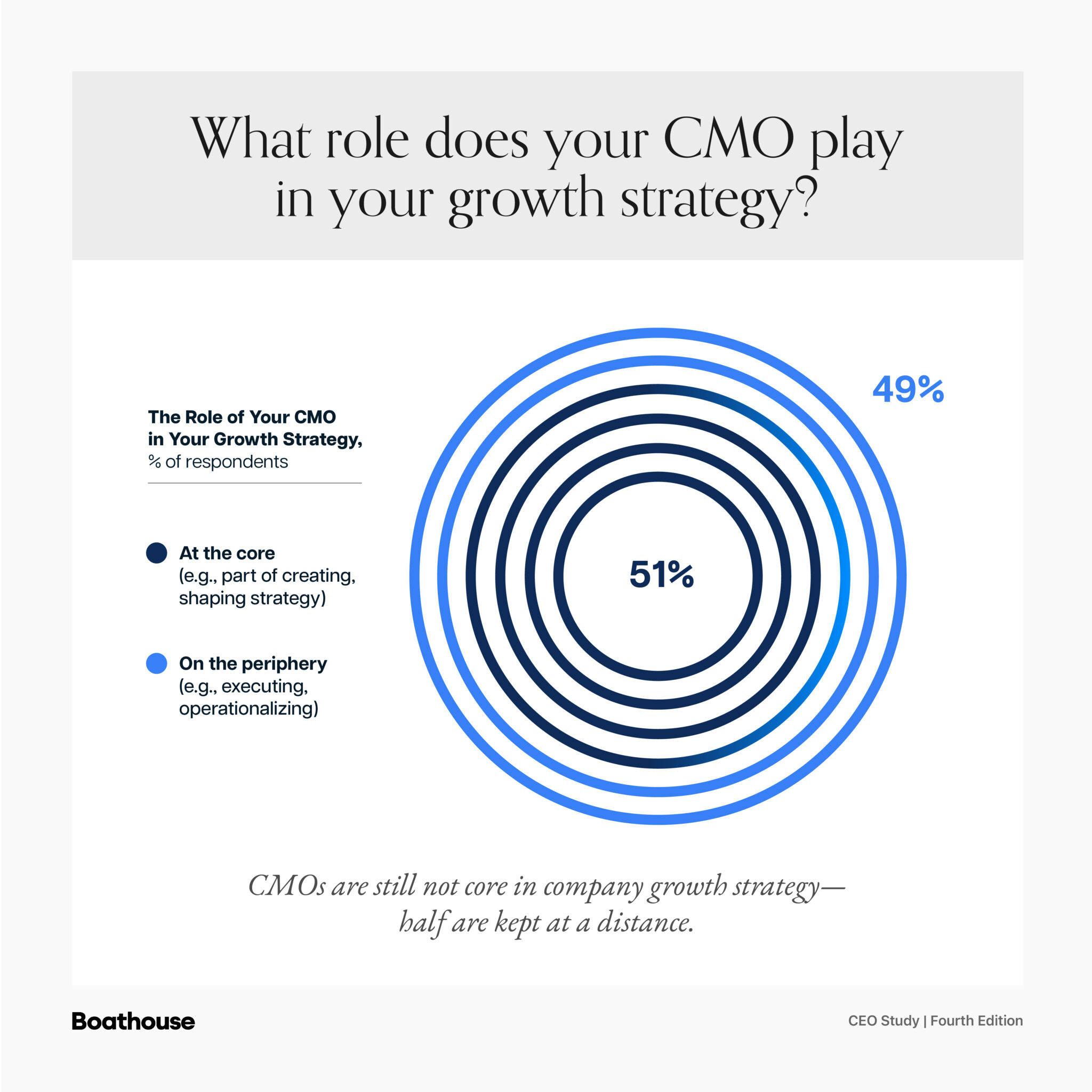Boathouse’s Annual CEO Study on Marketing and the CMO, now in its fourth edition, surveyed 150 CEOs to assess their perceptions of CMO performance and marketing departments within their organizations. Following are the study’s key insights relating to CMO performance, financial acumen, tenure, relevance and AI integration.
CMO Performance
This year’s survey suggests that the CMO-CEO relationship is improving. The majority of CEOs (76%) acknowledge their CMOs’ commitment to the CEO and the Board, a marked increase from 44% four years ago. Moreover, 45% rated their CMOs as “Best in Class,” an increase from 21% in 2022’s survey. However, only 24% of CEOs gave their CMO an “A” grade for overall performance, and perception of nearly all important areas of the business declined, including trust in the C-suite, the ability to translate company goals to marketing goals, and the ability to drive company growth.
CMO Financial Acumen
CMOs are more integrated with C-suite business priorities, with 79% of CMOs now involved in financial goal setting—a sizeable increase from 56% last year. But only 51% are very involved in creating growth strategy, versus the 49% responsible for executing that strategy. For Maurya Overall, Principal at Boathouse, this reveals a critical disconnect in the CMO-CEO relationship. “The most like alarming thing was that 51% of those CMOs are still being seen as being outside the core and on the peripheral, and more there for thinking about operations and execution rather than quarter the growth strategy,” she says.

Marketing’s Relevance
While many CMOs are gaining high marks from CEOs, the evaluation of marketing itself is less favorable. A majority of CEOs (66%) see marketing as more relevant than three years ago and as a key profit driver. But only 37% rate their organization’s marketing capabilities as “Best in Class.” In fact, 63% of CEOs rate their capabilities as “average” or “underperforming,” a notable decline from last year.
“There’s a disconnect happening in that strategy along the way through the organization,” Overall speculates. In her view, the solution requires “getting clear on what the CEO needs to be able to achieve their overarching strategy … and where there are the opportunities to do that as a team across the C-suite, so that everyone understands the interplay.”
CMO Tenure
Interestingly, 52% of CEOs continue to be unaware of CMOs’ typically short tenure within the C-suite. And whether or not this is viewed positively depends on the industry and sector. For instance, among those CEOs who are aware of the role’s short tenure, 61% of those at public companies view it as a success. But 67% in private companies perceive it as a failure. Moreover, 14% have considered eliminating the CMO position entirely and 30% have either made changes to CMO reporting structures or are considering making a change.
AI Integration
While 80% of CEOs say they are implementing AI across their companies, only 41% of them give CMOs an “A” or “B” grade for integration, down 15% from last year. Moreover, other functional areas have eclipsed marketing’s AI adoption, namely customer service and operations.
Importantly, AI application in marketing has taken on greater strategic value, moving from content and creative use cases to analytics, customer experience and strategy initiatives. “That’s certainly something we see on our side with clients,” Overall says. “That’s really where the value is coming.”